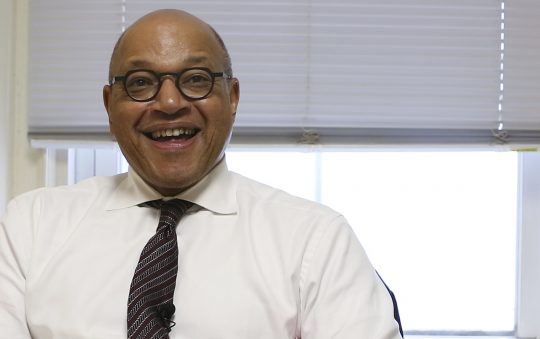As we celebrate Dr. Martin Luther King, memories of his last birthday flood my mind. He rose early and came to work. He was convening leaders from across regions and races — blacks, Latinos, Native Americans, faith leaders, lawyers, organizers. He hoped to enlist them in planning a “Poor People’s Campaign,” a march on Washington to demand jobs and justice.
Dr. King’s perspective was clear. The civil rights movement had made great progress — ended legal segregation, gained the right to vote and demonstrated the humanity of those who were locked out.
But those victories were limited in effect. Our communities were still divided on the ground. The right to vote had to be exercised over continued obstacles. Poverty was robbing children of their potential, yet the Vietnam War abroad was consuming the attention and resources desperately needed at home. Our cities were ready to blow. America was still two nations, separate and unequal. It was time to come together. It was time to march again.
Today, Dr. King would surely be of the same mind. Our cities have become traps for the impoverished, with guns and drugs coming in and jobs gong out. What were slums then have become abandoned zones, with public housing torn down and private housing foreclosed.
The poor are ever more isolated. They struggle with only the harsh choices of poverty. Can they afford to get to where a job might be? Do they pay for the medicine they need or for food for their children? How can they keep their children safe when they have to work two jobs to keep a roof over their heads? They have no margin. One thing goes wrong — a job lost, a car breaks down, a child gets in trouble, a mother gets sick — and what little stability they have managed to create is destroyed. White, black, brown — no wonder drug and alcohol take a harsh toll amid these pressures.
In his State of the Union, President Barack Obama stated correctly that the United States has the most powerful military in the world, spending as much on it as the next eight nations put together. Dr. King would not have thought this was something to brag about. Dr. King was suspicious of those who talked peace but budgeted for war. Poverty, he would argue, is a weapon of mass destruction that must be disarmed. He would surely have warned that we have plans to rebuild countries across the world, but there is no plan to rebuild our own cities. House speaker Paul Ryan convened Republicans to talk about poverty, but Republican governors (with some exceptions) still refuse to extend Medicaid to millions of working poor people that Washington would pay for.
America leads the world in the number of its citizens it locks up. Dr. King would not have thought this something to brag about. Now cost pressures are leading politicians to consider ending our obscene sentencing practices and reducing our prison populations. Yet there is no plan for re-entry of those who were locked up.
Locking them up for nonviolent offenses was perverse. Releasing them without a plan for re-entry, a hope for a job, is equally perverse.
Let us celebrate Dr. King by following his example. He called us to act, to make our voices known, to vote in large numbers. Violence is not the answer. Despair leads only to defeat. He called on us to stand up, to lead, to march, to demand change. We are judged, he reminded us, not by our rhetoric but by how we treat the least of these. Actions, not words, provide the measure.







